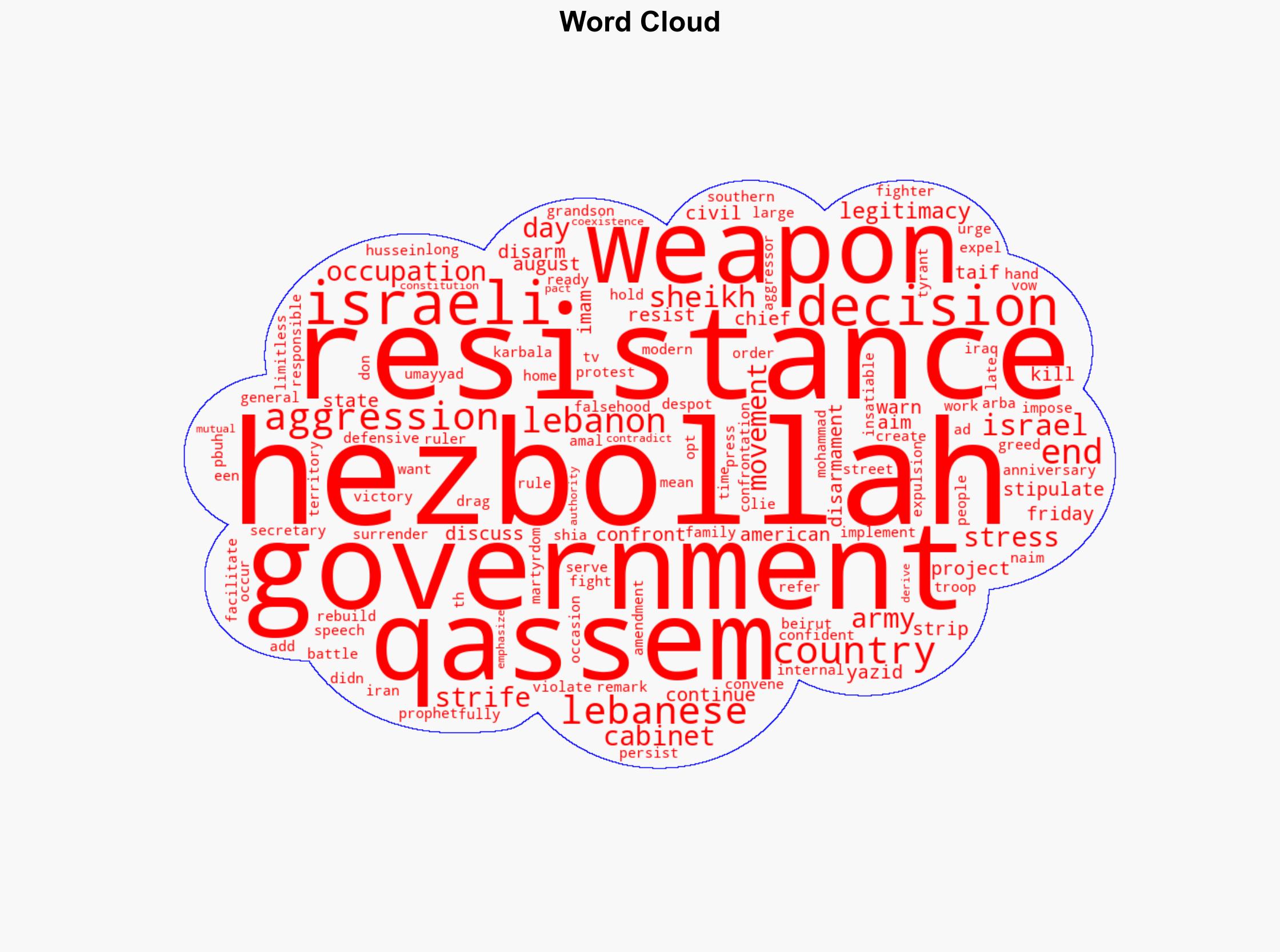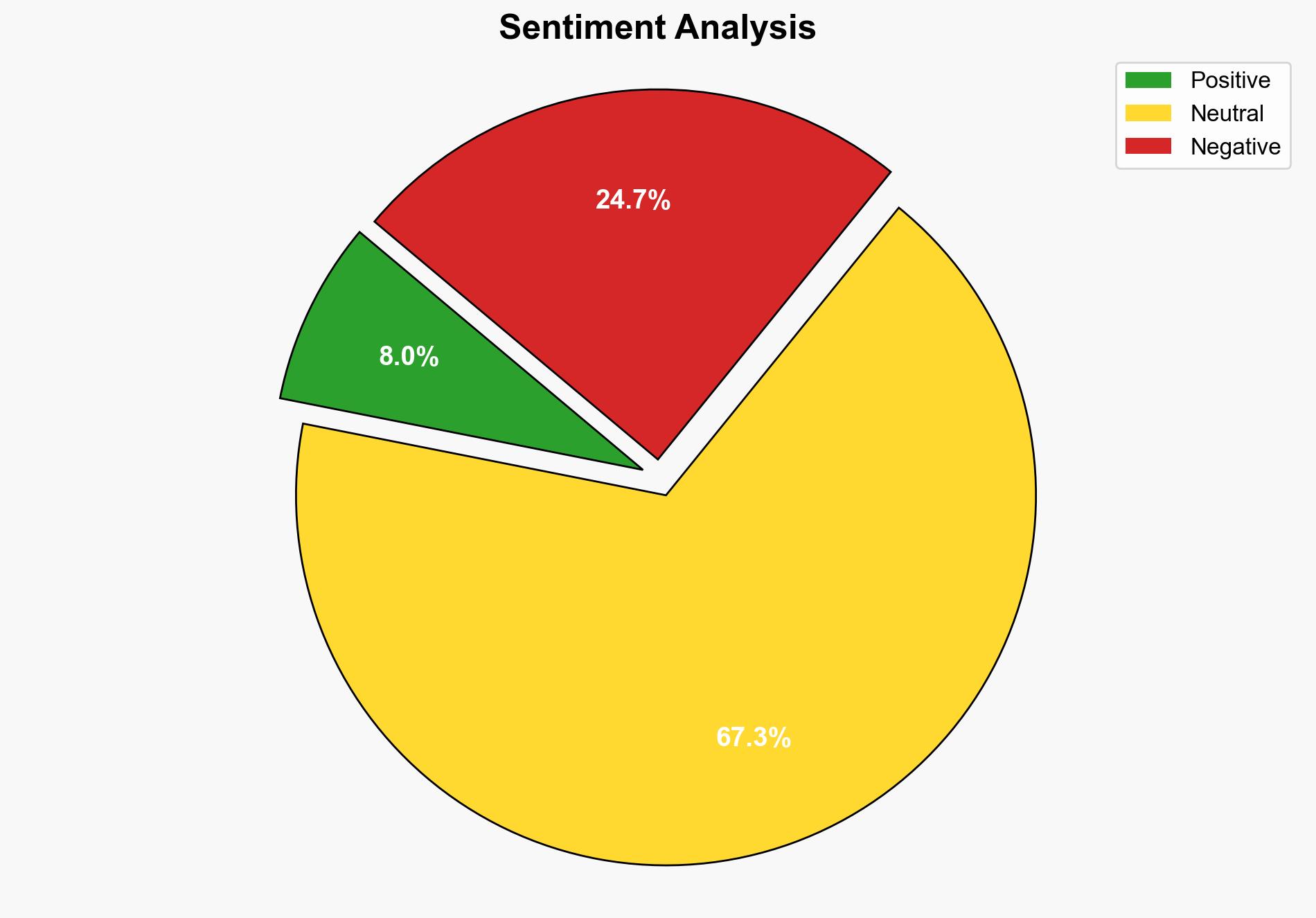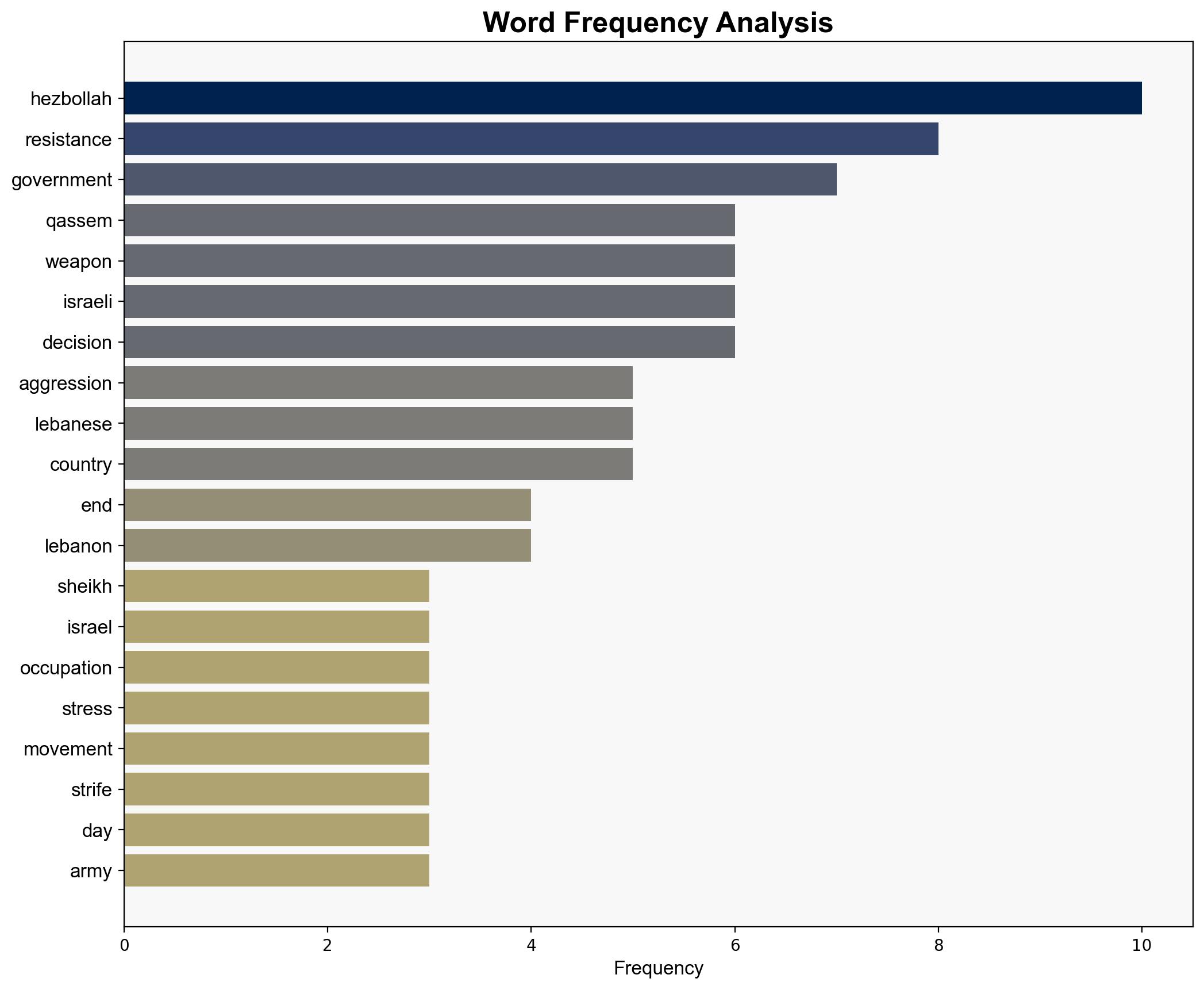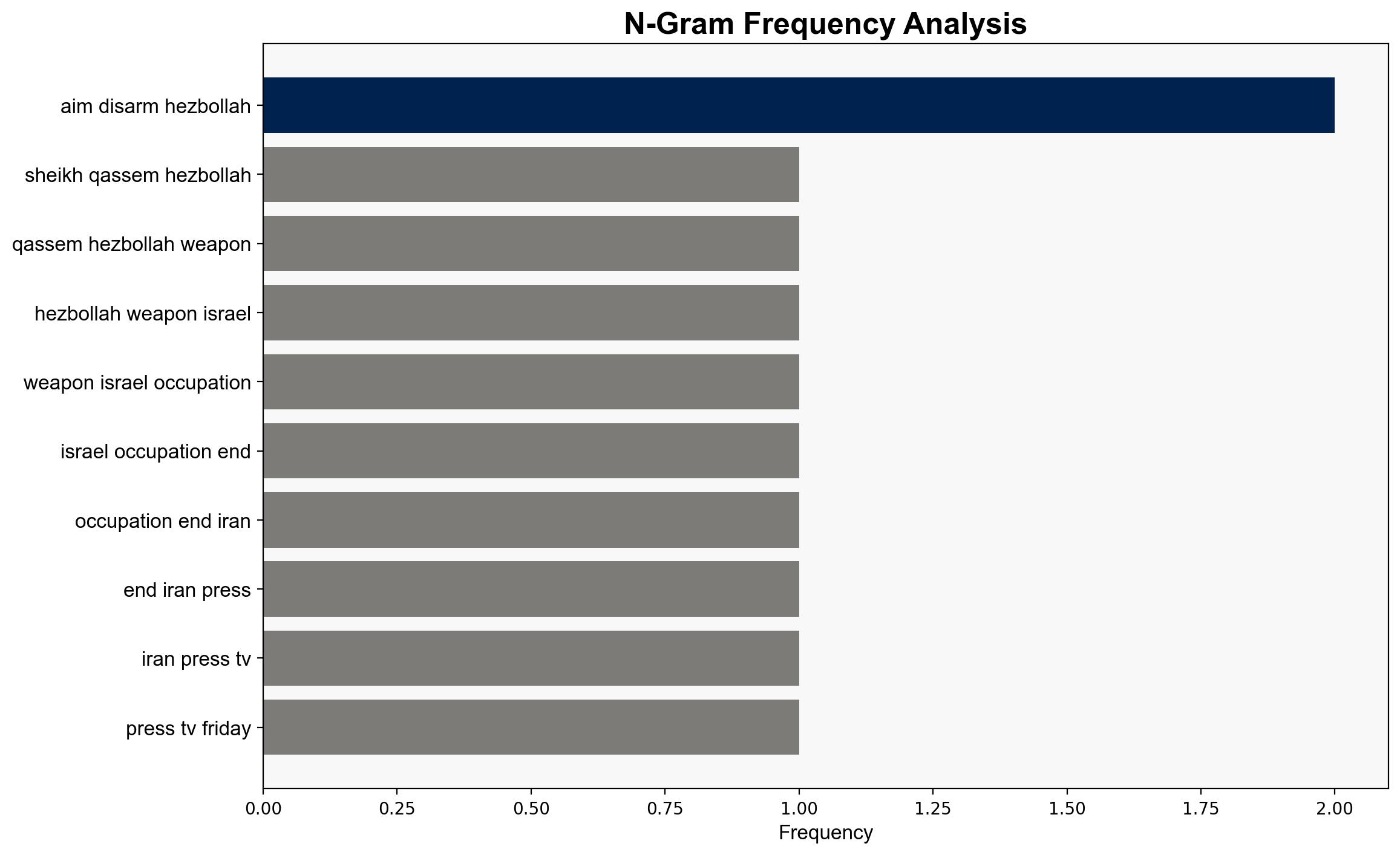Sheikh Qassem says Hezbollah will not give up its weapons until Israel’s occupation ends – Globalsecurity.org
Published on: 2025-08-16
Intelligence Report: Sheikh Qassem says Hezbollah will not give up its weapons until Israel’s occupation ends – Globalsecurity.org
1. BLUF (Bottom Line Up Front)
The most supported hypothesis is that Hezbollah’s stance on retaining its weapons is primarily a strategic maneuver to maintain leverage in Lebanese politics and regional dynamics, rather than an immediate intent to escalate military conflict. Confidence level: Moderate. Recommended action: Engage in diplomatic efforts to address underlying grievances and explore confidence-building measures between Lebanon and Israel.
2. Competing Hypotheses
1. **Hezbollah’s Position as a Political Strategy**: Hezbollah’s refusal to disarm is a strategic political maneuver to maintain its influence within Lebanon and leverage against Israel. This hypothesis suggests that Hezbollah is using the threat of armed resistance as a bargaining chip rather than a precursor to imminent conflict.
2. **Preparation for Escalation**: Hezbollah is preparing for potential military escalation with Israel, using the rhetoric of resistance to justify retaining and potentially expanding its arsenal. This hypothesis implies a higher likelihood of conflict if diplomatic solutions are not pursued.
Using ACH 2.0, the first hypothesis is better supported by the current political context and historical patterns of Hezbollah’s behavior, which often involve strategic posturing rather than immediate military action.
3. Key Assumptions and Red Flags
– **Assumptions**: It is assumed that Hezbollah’s statements are primarily rhetorical and not indicative of immediate military intentions. Additionally, it is assumed that the Lebanese government has limited capacity to enforce disarmament.
– **Red Flags**: The potential for misinterpretation of Hezbollah’s intentions by regional actors could lead to unintended escalation. The lack of clear communication channels between Hezbollah and the Lebanese government is a significant blind spot.
4. Implications and Strategic Risks
– **Geopolitical Risks**: Continued tension between Hezbollah and Israel could destabilize the region, impacting international relations and economic stability.
– **Internal Risks**: Potential civil strife within Lebanon if the government attempts to enforce disarmament without broad consensus.
– **Escalation Scenarios**: A failure to address underlying grievances could lead to increased hostilities, drawing in regional and international actors.
5. Recommendations and Outlook
- Engage in diplomatic dialogue with regional stakeholders to address the root causes of Hezbollah’s resistance narrative.
- Facilitate confidence-building measures between Lebanon and Israel to reduce the risk of miscalculation.
- Scenario Projections:
- Best Case: Successful diplomatic engagement leads to de-escalation and gradual disarmament.
- Worst Case: Misinterpretation of intentions leads to military conflict.
- Most Likely: Continued political maneuvering without immediate escalation.
6. Key Individuals and Entities
– Sheikh Naim Qassem
– Nawaf Salam
– Hezbollah
– Lebanese Government
7. Thematic Tags
national security threats, regional stability, political strategy, conflict prevention




